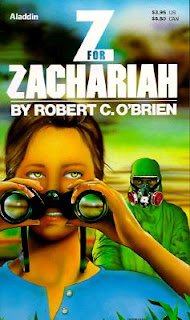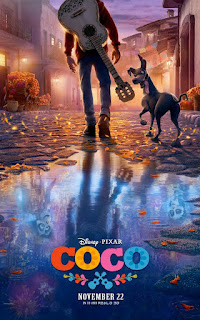"Some Content not Appropriate for Children" -- Does It Really Improve the Text?
Current Reads: Orsinian Tales by Ursula K. Le Guin
Interview with the Vampire by Anne Rice
Catching Fire by Suzanne Collins
Current Writing Projects: Various thesis work including my craft introduction and a short story being reworked as a triptych of flash fiction (yeah, it blew my mind too when I thought of it)
A week or two back, I came across this quotation in an interview with Steven Moffat (the guy who now heads production of the British sci-fi series Doctor Who and BBC's modern Sherlock Holmes adaptation) regarding the difference between writing for an audience with children and an audience without: Writing for adults often means just increasing the swearing - but find an alternative to swearing and you've probably got a better line.
This statement struck me because not only did it summarize and agree with my own stance on writing, but because this is a guy who makes his living writing and producing very popular television series. If anyone understands the modern push to use more swear words in his writing it's this guy, yet he says it is better to find another line than to use cussing.
I don't hold this position out of some prudish ideology that those words are inherently wrong, because they aren't. They are words just as much as the ones I am using now. The problem lies in the intention behind the words and the attitude behind their use. Also, some of those words aren't words I care to hear or read, much less write. So how do I justify this attitude of cursing less in my fiction? Aside from my own personal convictions on the matter, I find that Moffat's statement holds true: find something else to put there, and the line is 99% likely to be better than before. (If it isn't, you may not need the line at all.)
This idea has been rolling around in my head for some time, but since reading Moffat's take on the subject I have read George Saunders' collection Pastoralia. The collection is good, and the stories themselves are very well written, but Saunders often makes use of language I wouldn't use or care to hear used. I have noticed most of the newer short story authors I have read make frequent and heavy use of language most of the time (each author I can think of whose collections I have read has at least one or two stories that are relatively free of foul language) and I am puzzled by this trend. On the one hand I suppose the more frequent use of cussing has arisen from the blurred lines of morality in culture, but that's another subject. It might also arise from the cool-factor or the trendiness of transgression (which is a big topic in literature studies and very popular). By transgression we mean something that goes against (transgresses) the mainstream or dominant culture. So novels like Gabriel Garcia Marquez's One Hundred Years of Solitude would be considered transgressive because Marquez says that the history as told by the government is not only faulty but a complete fabrication.
I understand that some stories will call for the use of cussing -- there are some situations and characters who will not speak without this sort of language. However, I think that a story which relies to heavily on this aspect of those characters will be weakened by it. For instance, one series I enjoy reading is Jim Butcher's Dresden Files. The books are part noir detective story, part modern crime thriller and all fantasy. Given the situations and characters, I understand and can stomach a certain amount of cussing in these books. The second book, Fool Moon, is no exception. The problem I have with Fool Moon is that a story I would like to enjoy enough to reread it from time to time has so many uses of the f-bomb that I really don't want to read it ever again. Another example of a story that suffers from overuse of language is the film Sleuth (I mean the more recent version with Jude Law and Michael Caine, not the earlier one with Caine and Laurence Olivier). This film used the f-bomb and other obscenities so frequently I nearly turned off the television (and sometimes wish I had). Yet the story was compelling and since the previous film did not contain that level of language, I can only assume the language used was unnecessary to the story being told.
I feel I'm getting a bit unfocused, so I'll wrap up. Swearing isn't necessary to make your story more edgy or gritty or hip or sellable. In fact, I think more people will buy your story/novel if they can recommend it to others without fear of offense (an issue I run into frequently with newer fiction). I speak here of everyday people, not of publishers, editors and agents. I cannot speak for them as I haven't had much experience speaking with them.
One final thought: I always write my characters with the following situation in mind: I may at some point have to read this aloud. Readings are a large part of the writer's community today, and audiobooks read by the author are not unheard of, so my philosophy on using language or other "questionable" content is this: If I would be embarrassed to read this line in front of an audience, I probably shouldn't be writing it.
Interview with Steven Moffat that started all of this ranting: http://www.guardian.co.uk/tv-and-radio/2012/jan/20/steven-moffat-sherlock-doctor-who



This is a big problem I have with my stories. I write a lot like Palahniuk and Bukowski. Call it minimalism, call it hyper-realism, smut, call it whatever you want. It's basically where I try to create characters that are like real people and talk like real people. Even further, I take real people and their problems and expand their eccentricities, almost to the point of absurdity all with the goal of explaining a wee bit of humanity. The problem lies with content. Our lives are not neat and clean, and as far as my friends and I go, neither is our language. Thus, most of my stories are terribly offensive, so much so that it's hard to publish them.
ReplyDeleteThe quandary for me subsists in the balance between my desired realism and maintaining readability. I remember how turned off I was on Salinger by the superfluous use of GD by Holden, and I understand how foul language deeply offends some people. But I grew out of that and now love Salinger. That one phrase GD is the only one that bothers me, but I find even myself using it occasionally because my characters do. Yes, I control the characters, but you know that control is not full. Yet, I still feel that if I'm going to accurately depict our lives and our speech, that it is going to require some foul language. I think what you said about declining moral values is one hundred percent correct. Gatsby is often called the perfect novel, and it is very realistic, but that was a different time. The way we talk now is way different even from 40-50 years ago.
I don't know. This is something I struggle with daily, but I can't change my voice just so people will feel more comfortable reading, can I? I hope some of what I have said has made sense. I just wanted you to hear from someone who also thinks about this but from the other side. You feel the need to occasionally allow a character to swear, and I feel the need to defend my blatant swearing. I have no idea who is closer to being right, haha.
Sorry for the novel. I got worked up.
-Joe